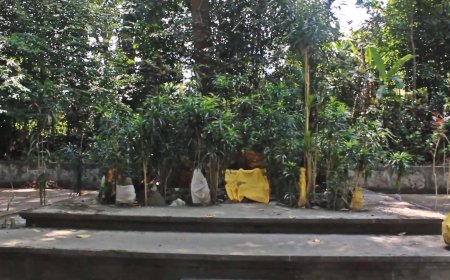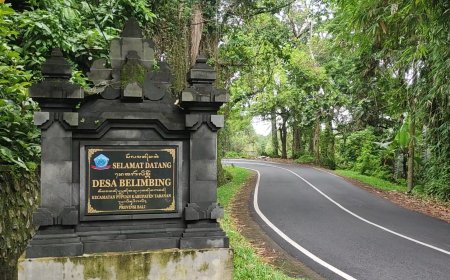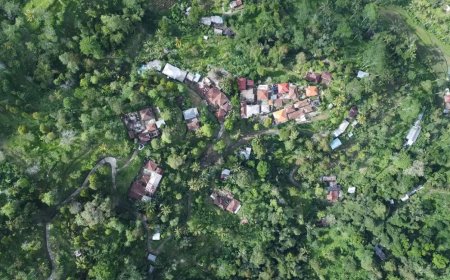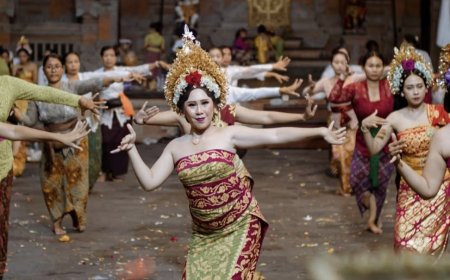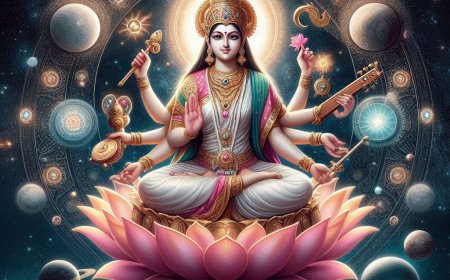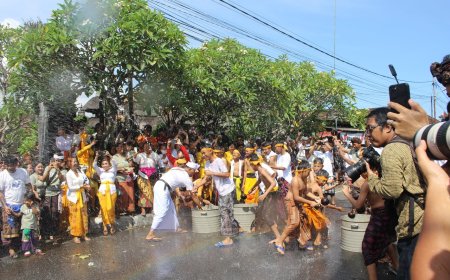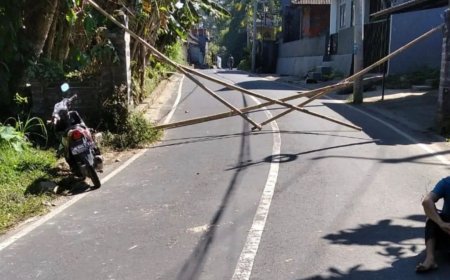Nedunin Dewa Nini : Agrarian Traditions as a Meaning of Gratitude for Abundant Harvests
Nedunin Dewa Nini is a sacred tradition in Bali symbolizing gratitude for the harvest and the village’s well-being. In this solemn procession, the community reverently carries Dewa Nini to the village temple (Pura Desa) while bringing offerings. This ceremony not only strengthens the spiritual bond with God but also maintains harmony between humans and nature. This article will explore in depth the meaning, series of events, and the significance of this tradition in the lives of the Balinese people.
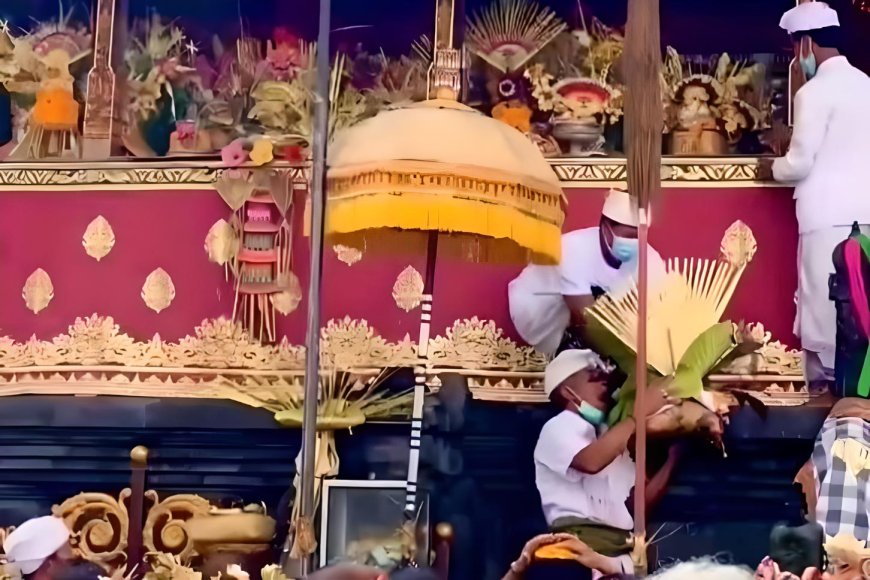
The Nedunin Dewa Nini tradition held in Desa Adat Padang Luwih, Dalung, North Kuta, Badung, Bali, is a religious event highlighted by the mepeed procession. In this procession, Dewa Nini is paraded to Pura Desa lan Puseh in a unique manner, where village women line up neatly like in a parade. They carry Dewa Nini on their heads (mesuwunan) as a sign of respect, while wearing traditional Balinese attire. The parade is accompanied by the sound of traditional gamelan music, specifically baleganjur. This gamelan music enhances the sacred and solemn atmosphere as the procession moves forward.
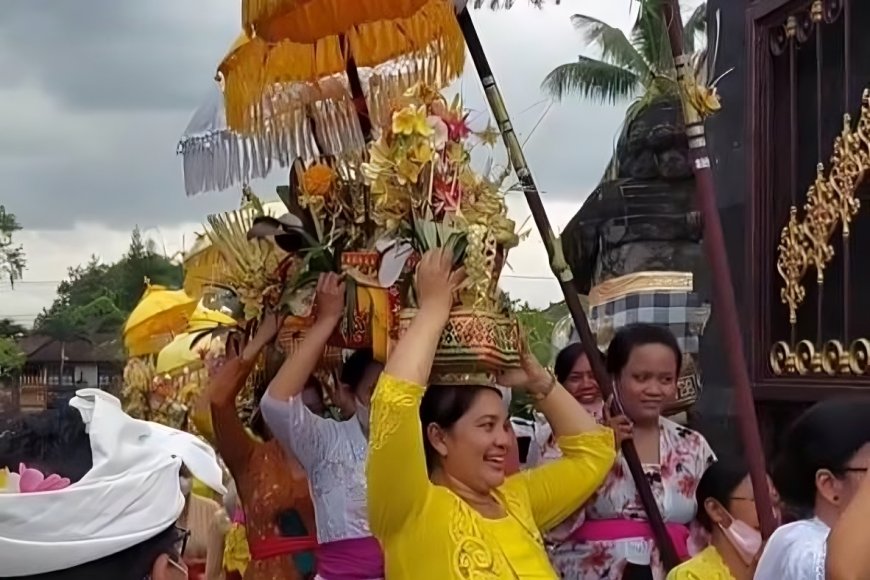
The Arrival of Sesuwunan or Dewa Nini (Photo Source: Personal Collection)
The journey route begins at Bale Banjar, the gathering point for the community, and continues to Pura Desa lan Puseh, concluding at Bale Agung, a tall and long stage building. Bale Agung serves a special function as the place to place Dewa Nini during the procession. In addition to this solemn mepeed procession, a Mesoda ceremony and a communal prayer are held that day, attended by all villagers. Both ceremonies express the community's deep gratitude to God for the harvest they have received, symbolizing the blessings from Dewa Nini or Dewi Sri.
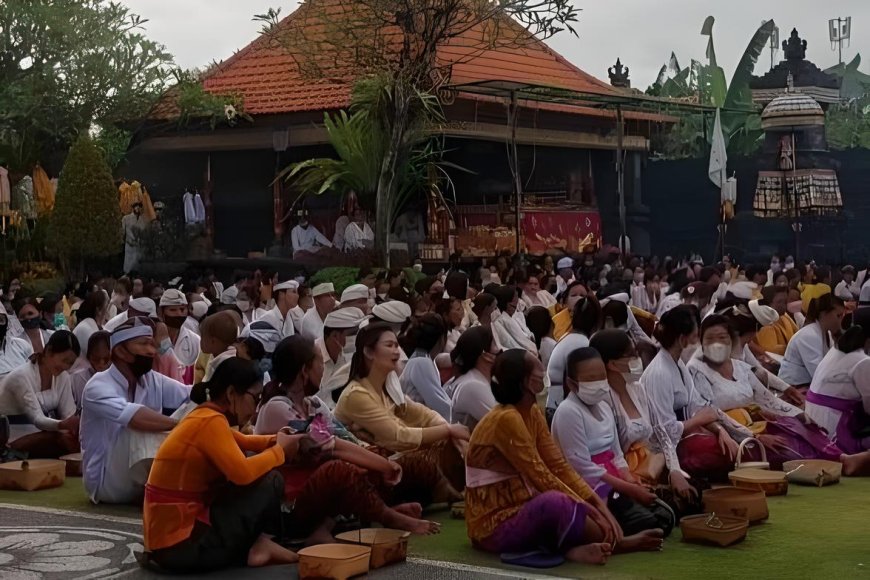
Joint Prayers at Pura Desa Lan Puseh (Photo Source: Personal Collection)
The peak of the Nedunin Dewa Nini ceremony takes place on the day of Bulan Purnama Kedasa. On this day, various sacred activities are held, including pependetan, which is a sacred dance, as well as ilen-ilen tetoyan, culminating in a joint prayer that begins around 19:00 and continues until completion. This prayer marks the climax of the entire event, reflecting the respect and devotion of the villagers to Dewa Nini. This moment is very significant in the village tradition, as it is when the gods are worshipped with reverence.
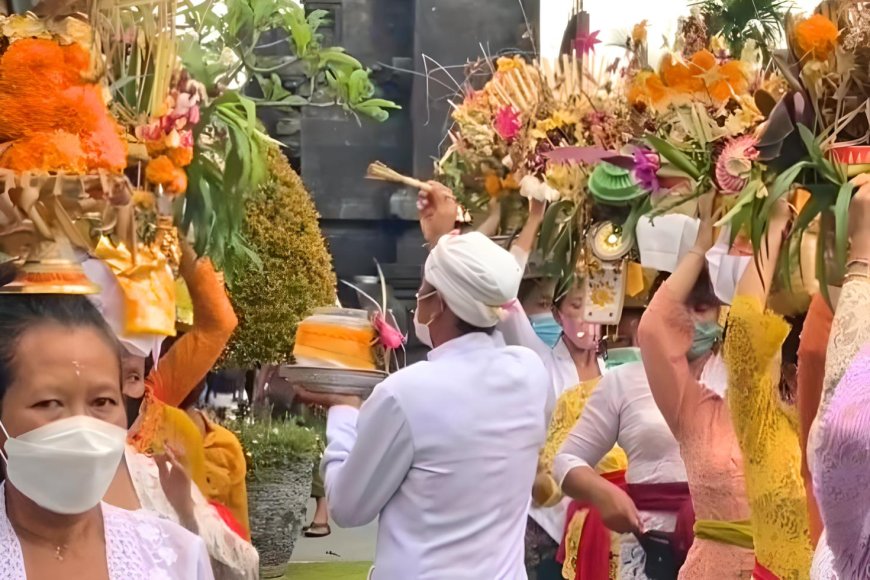
The final day of this procession falls one day after Purnama Kedasa. On this day, the event begins with offering sesajen (Mesode) and Caru Penyineb, a special ceremony to honor and pacify spirits or negative forces to prevent them from disturbing the ceremony and the community’s life. After this ceremony is completed, Dewa Nini is then returned to the homes of the villagers. At home, Dewa Nini is typically placed in a Jineng, which is a traditional rice barn, or in the kitchen’s plangkiran located in the northeast corner of the kitchen. With the completion of the Nedunin Dewa Nini ceremony, the community is allowed to begin the rice harvesting process and turn it into rice, which will serve as their staple food. This signifies their gratitude for the blessings received and their prayers for future prosperity.
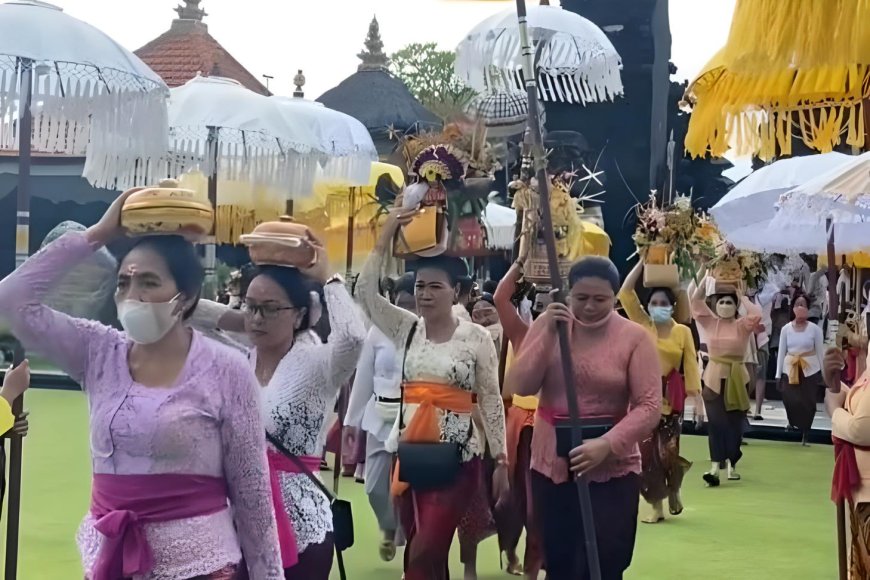
Village Women Placing Dewa Nini in the Jineng of the House (Photo Source: Personal Collection)
After the entire series of the Nedunin Dewa Nini procession is completed, the villagers feel a deep sense of relief and spiritual satisfaction. This tradition not only serves as a manifestation of gratitude for the abundant harvest but also symbolizes the community's commitment to maintaining a harmonious relationship between humans, nature, and the gods. By parading Dewa Nini and placing her in the Jineng or the kitchen's plangkiran, the Balinese people reinforce their belief that the agricultural blessings they receive result from their efforts to maintain cosmic balance. This tradition continues to be preserved not merely as a cultural event but also as a means of educating younger generations about the importance of respecting nature, ancestors, and God. Even as the world evolves with various forms of modernization, the sacred values within the Nedunin Dewa Nini tradition remain intact, reminding the community of the significance of spirituality and environmental sustainability. With an awareness of its profound spiritual and social meanings, this ceremony plays a vital role in collectively binding the community, strengthening cultural identity, and ensuring the sustainability of agrarian traditions that have persisted for centuries.
